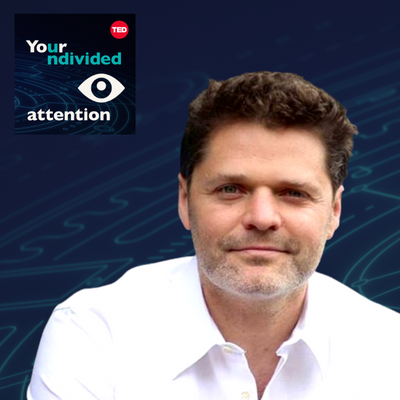Episode 46 | Feb 3, 2022
Here’s Our Plan And We Don’t Know with Tristan Harris, Aza Raskin, and Stephanie Lepp
Renowned quantum physicist Richard Feynman once wrote, "It is our capacity to doubt that will determine the future of civilization."
In that spirit, this episode is a little different – because we're talking openly about our doubts, with you, our listeners. It's also different because it’s hosted by our Executive Producer Stephanie Lepp, with Tristan Harris and Aza Raskin in the hot seats.
How have we evolved our understanding of our social media predicament? How has that evolution inspired us to question the work we do at Center for Humane Technology? Join us as we say those three magic words — I don't know — and yet pursue our mission to the best of our ability.
Major Takeaways
On Your Undivided Attention, we've covered various social issues, like addiction, disinformation, polarization, and climate change. Specifically, the so-called "generator frame" sees different social issues as symptoms of the same generator functions of existential risk. For this reason, if we care about addressing the problems of exponential technology, we must care about understanding and addressing these core generator functions. To learn about these functions, hear our episode with Daniel Schmactenberger.
According to philosopher Forrest Landry, we're running a destructive program across different domains: abstraction, extraction, depletion, and pollution. For example, trees are abstracted into "lumber with one number," extracted by being logged, and depleted due to over-logging, which pollutes our ecosystem. Similarly, our attention is abstracted into clicks, extracted through algorithms that maximize engagement, and deplete our well-being, which pollutes our social and informational ecosystem.
Along with being a co-founder of the Center for Humane Technology and co-host of Your Undivided Attention, Aza Raskin is a co-founder of the Earth Species Project — an open-source collaborative non-profit dedicated to decoding non-human language. The organization is motivated by the belief that an understanding of non-human languages will change our ecological impact on this planet.
In the words of Quantum physicist Richard Feynman, "It is our capacity to doubt that will determine the future of civilization." It's in this spirit that Tristan and Aza's friend Joe Edelman launched Doubt Club — a monthly gathering of startup founders dedicated to expressing their doubts. To start your own Doubt Club, find fellow entrepreneurs who are working on non-competing ideas. Agree that whatever is said won't leave the room. Then articulate your doubts in three rounds: first, share doubts about your product. Second, share doubts about your company mission or metrics. And third, share doubts about your life mission and career.
Other recommended reading
Leverage Points: Places to Intervene in a System
Systems theorist Donella Meadows' seminal article, articulating a framework for thinking about how to change complex systems.
Winning Humanity’s Existential Game
The Future Thinkers podcast with Daniel Schmactenberger, where he explores how to mitigate natural and human-caused existential risks and design post-capitalist systems.
Ledger of Harms of Social Media
The Center for Humane Technology's research on elaborating the many externalities of our technology platforms' race for human attention.
Foundations of Humane Technology Course
CHT's forthcoming course on how to build technology that protects our well-being, minimizes unforeseen consequences, and builds our collective capacity to address humanity's urgent challenges.
